EU research programme links needed says university
- Published
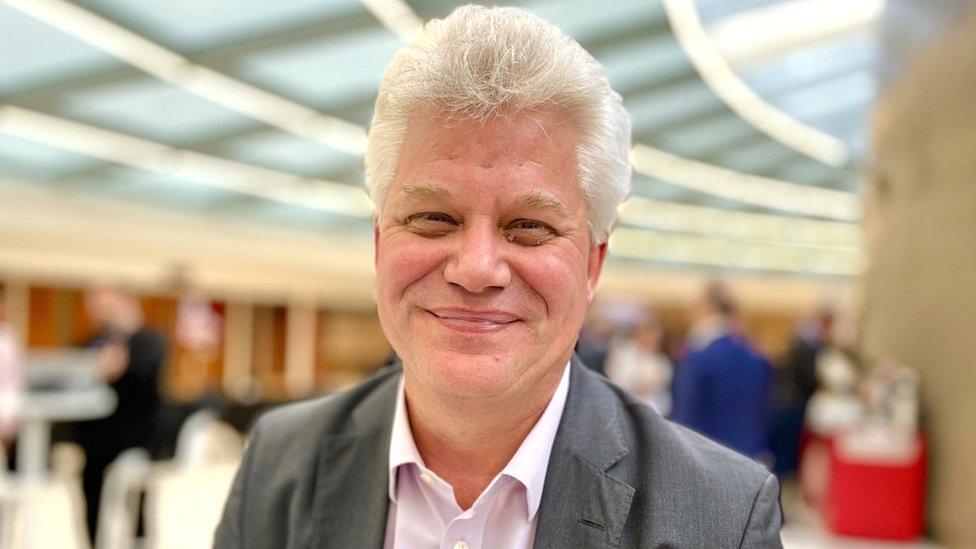
Andy Neely, Cambridge University senior pro-vice chancellor, said it is harder to persuade scientists to come to Britain while we are not part of Horizon
The need for the UK to join a €95bn EU science research programme is a top priority for Cambridge University, the BBC has been told.
Horizon Europe was set up to help sponsor research across Europe.
Professor Andy Neely, Cambridge University's senior pro-vice chancellor, said the uncertainty over Horizon was hindering recruitment.
The government said it was still negotiating over affiliation to Horizon.

The NIAB labs in Cambridge undertake cutting edge research into crops
But also said it was considering other options.
Prof Neely said he welcomed the government's science super power ambitions and increased research and innovation funding but said he was concerned that "Brexit or a lack of association with Horizon has made it slightly less easy to collaborate".
"Affiliation to Horizon Europe is the number one priority for the university at the moment," he said, speaking at Cambridge Tech Week.
"If you really want international collaboration you want to remove the barriers to that and make this as easy as possible.
"We recruit internationally. We still do attract people from around the world. But we are having to spend a little bit more time to persuade them the UK is the right home for them to come and base themselves and base their research groups.
"There is a bit more intense wooing of people to persuade them to come."
The assumption was that if differences over the Northern Ireland Protocol could be resolved, the UK would fully re-join the Horizon programme under terms similar to those it had before Brexit.
But the lack of a deal has frustrated scientists in the region.
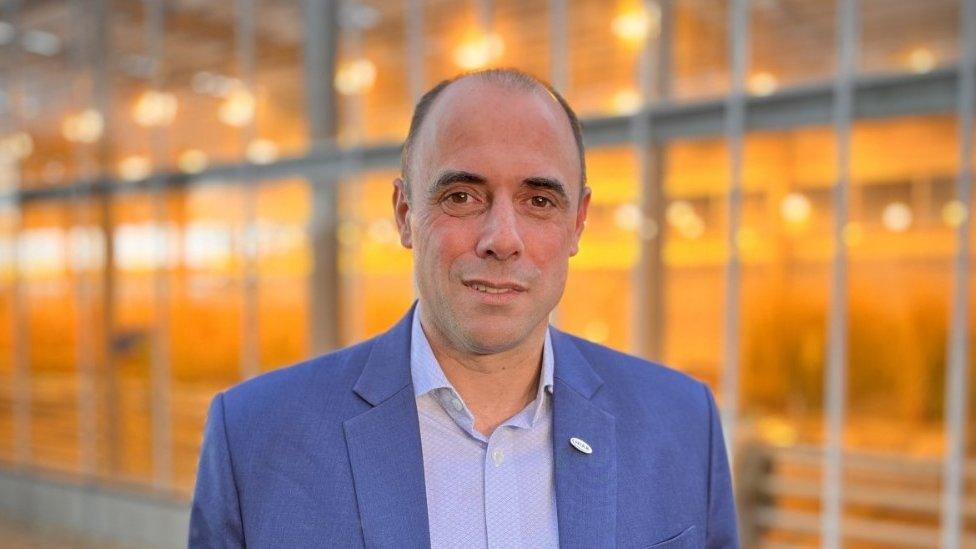
Professor Mario Caccamo believes negotiations over Horizon need to be completed as soon as possible
Prof Mario Caccamo, chief executive officer of Cambridge-based National Institute of Agricultural Botany (NIAB), said Horizon was a key funding programme.
"Clearly, we don't want to be left behind with every month we cannot engage or re-engage with scientists [through Horizon]. It is something we want to resolve as quickly as we can," he said.
"It is irritating I would say and frustrating to see the narrow-minded politics is going to have an impact on the UK in an area where we are global leaders in science.
"This is something we clearly want to retain. We owe this to ourselves. We owe this to the world."

Cambridge lab visited
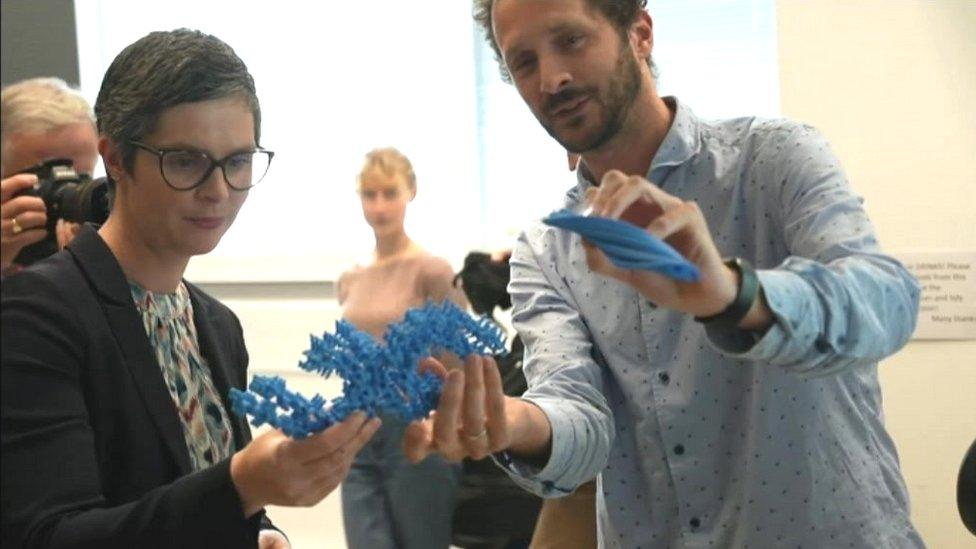
The MRC Laboratory of Molecular Biology in Cambridge was visited by Science and Technology Secretary Chloe Smith
Science and Technology Secretary Chloe Smith visited the MRC Laboratory of Molecular Biology in Cambridge on Thursday to announce £103m of funding for top UK labs across the country.
The money will fund new state-of-the-art equipment for their world-leading scientists or upgrades to existing facilities, and they are based across the country.
Those bases include Cambridge, Durham, Edinburgh, Leicester, Bristol, Hull, Nottingham, Glasgow, London, Manchester, Belfast, Warwick and Southampton.
Ms Smith said: "Our world class science and technology sectors are the engine for growth in the UK economy, and the basis for scientific and technological advancements that will improve everyone's lives.
"These sectors need continued, concentrated backing from the government and I am determined to provide it during my time as science and technology secretary, through funding such as this, which will ensure our world class labs have the infrastructure and equipment to match their status."

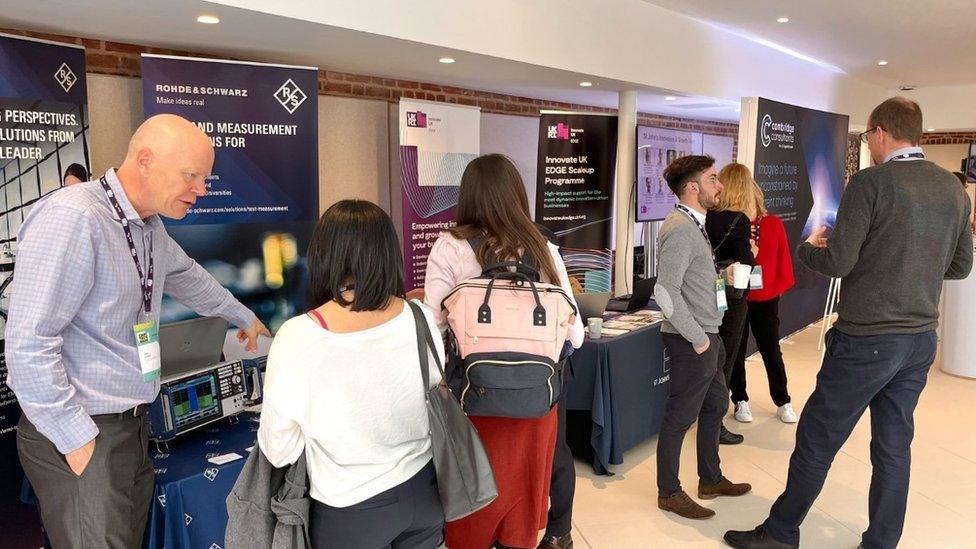
Science in Cambridgeshire has been provided this week during Cambridge Tech Week
Ms Smith, the Norwich North MP, told BBC Politics East: "We do want to associate to Horizon, but we need to do it on the basis of a fair deal for British researchers, British businesses and British taxpayers. Given that there have been two years of delays on the EU side.
"What we have also done is set out effectively a Plan B, the homegrown Pioneer project, an ambitious alternative which we are prepared to implement if we are not able to achieve our preference for association [the Horizon programme].
"We are working extremely hard to get that outcome. That is our preference, that is our priority. I'm working very hard on that."
But she added was "confident" about the Pioneer plan B.
"I think it is a very exciting programme and you do have many voices across industry acknowledging that not only do you need a sensible second option but that this is also a very good second option."

You can see more on this story on Politics East on BBC One on Sunday, 14 May at 10:00 GMT, with it also available on BBC iPlayer afterwards.

Find BBC News: East of England on Facebook, external, Instagram, external and Twitter, external. If you have a story suggestion please email eastofenglandnews@bbc.co.uk, external
- Published3 March 2023

- Published16 August 2022
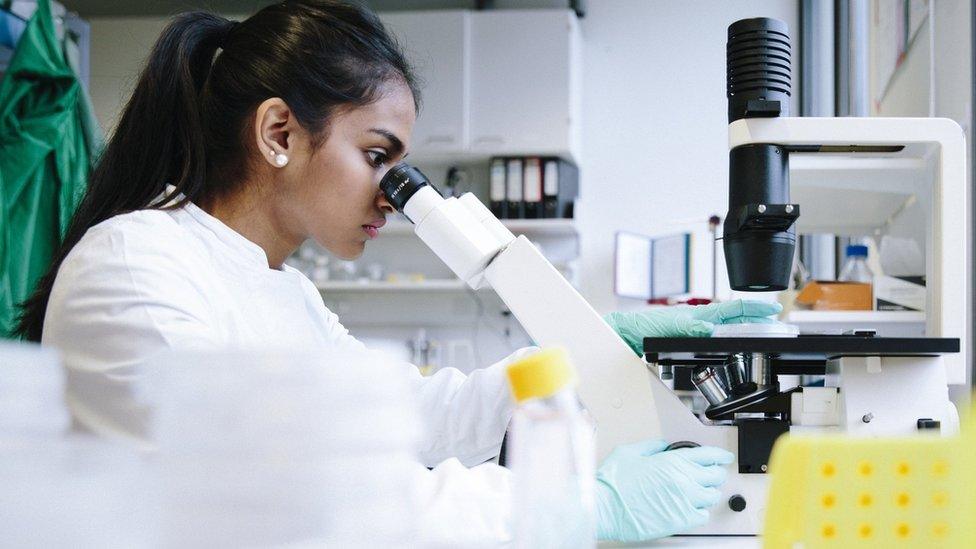
- Published31 January 2014
